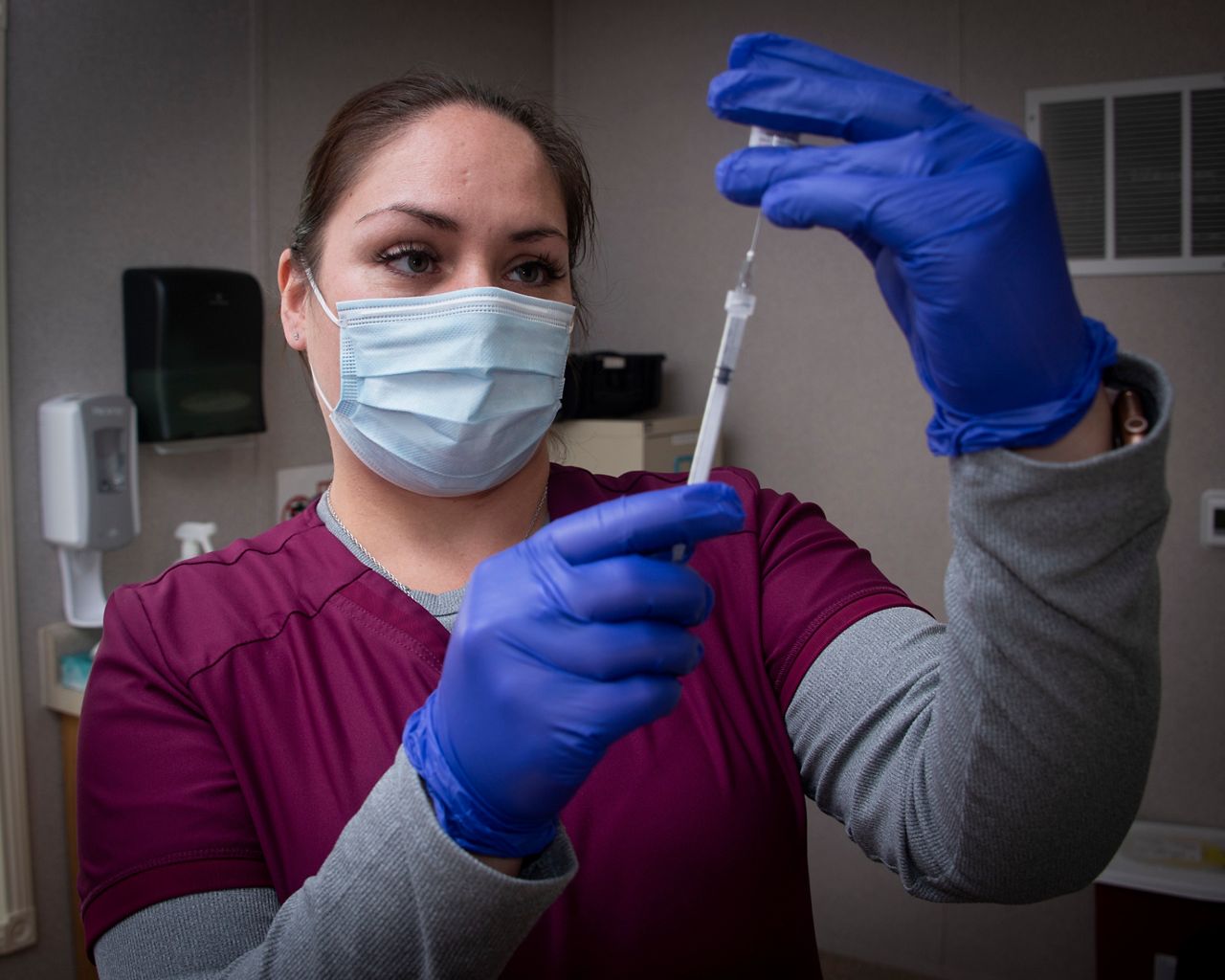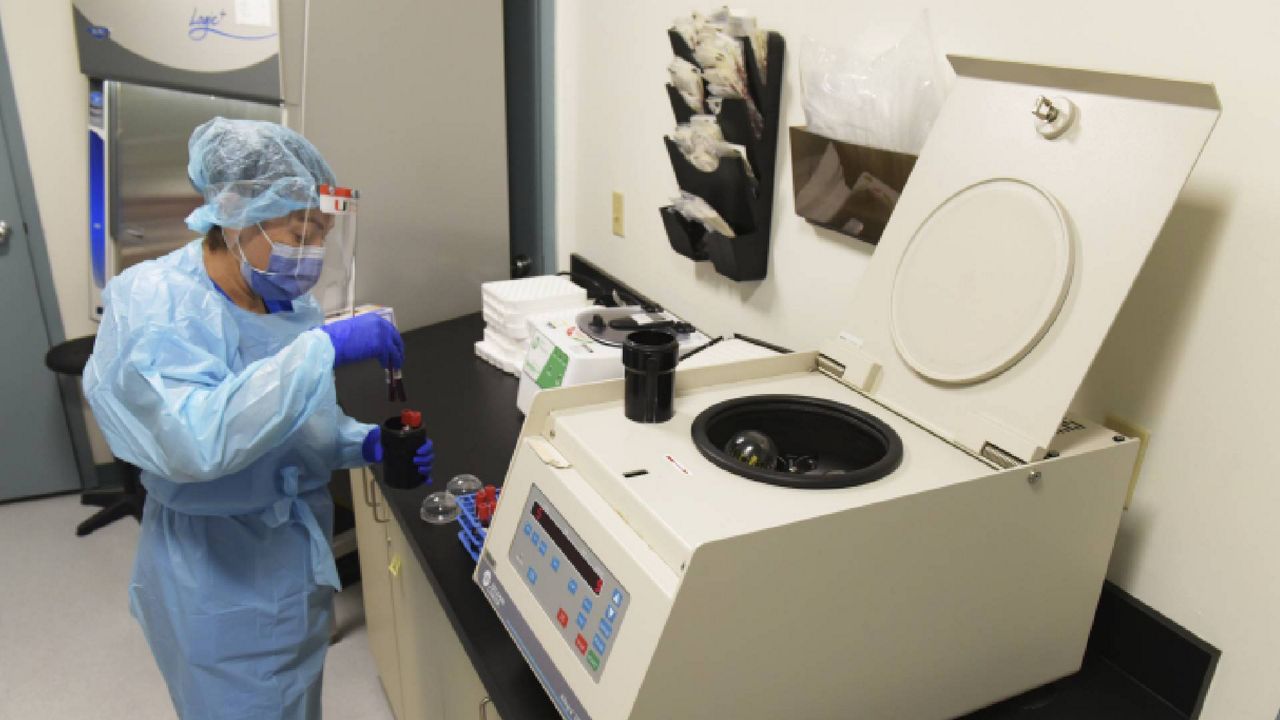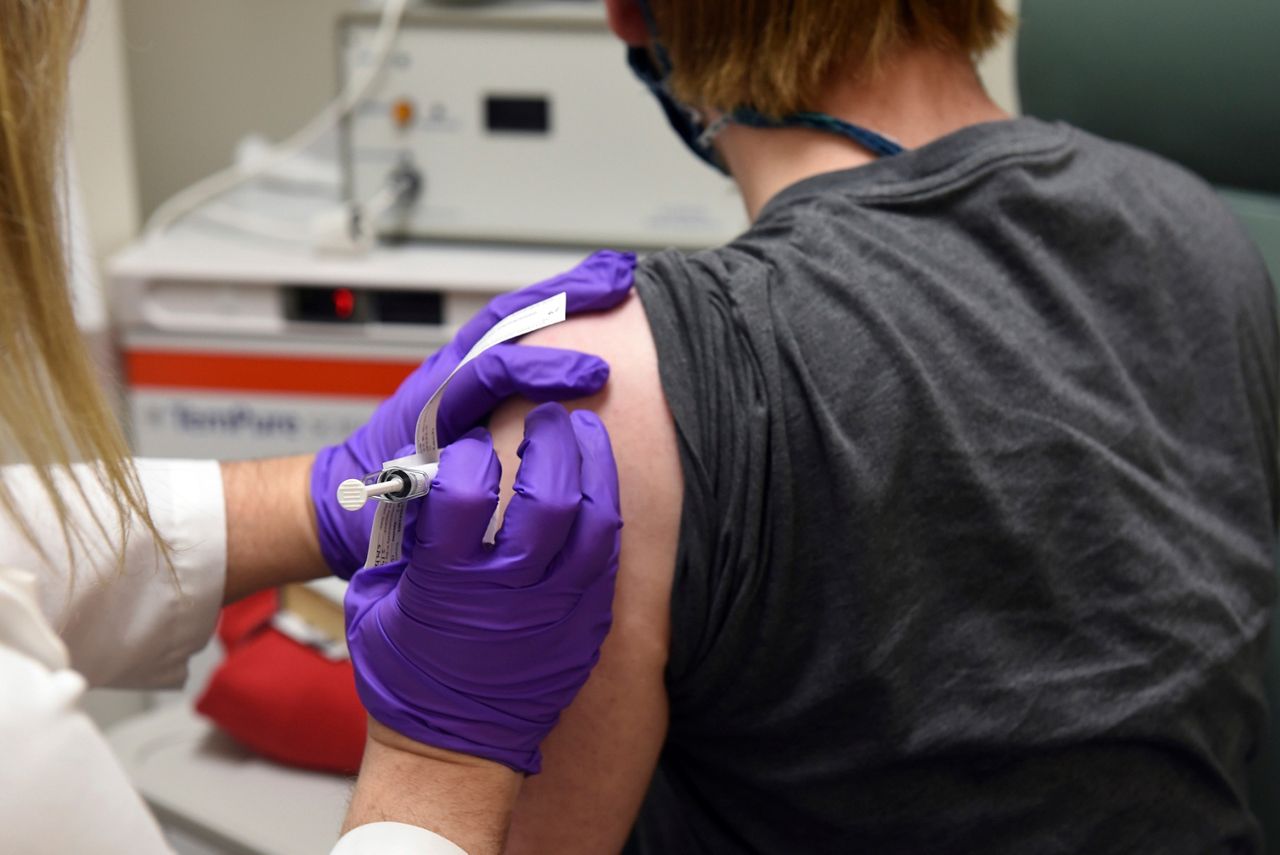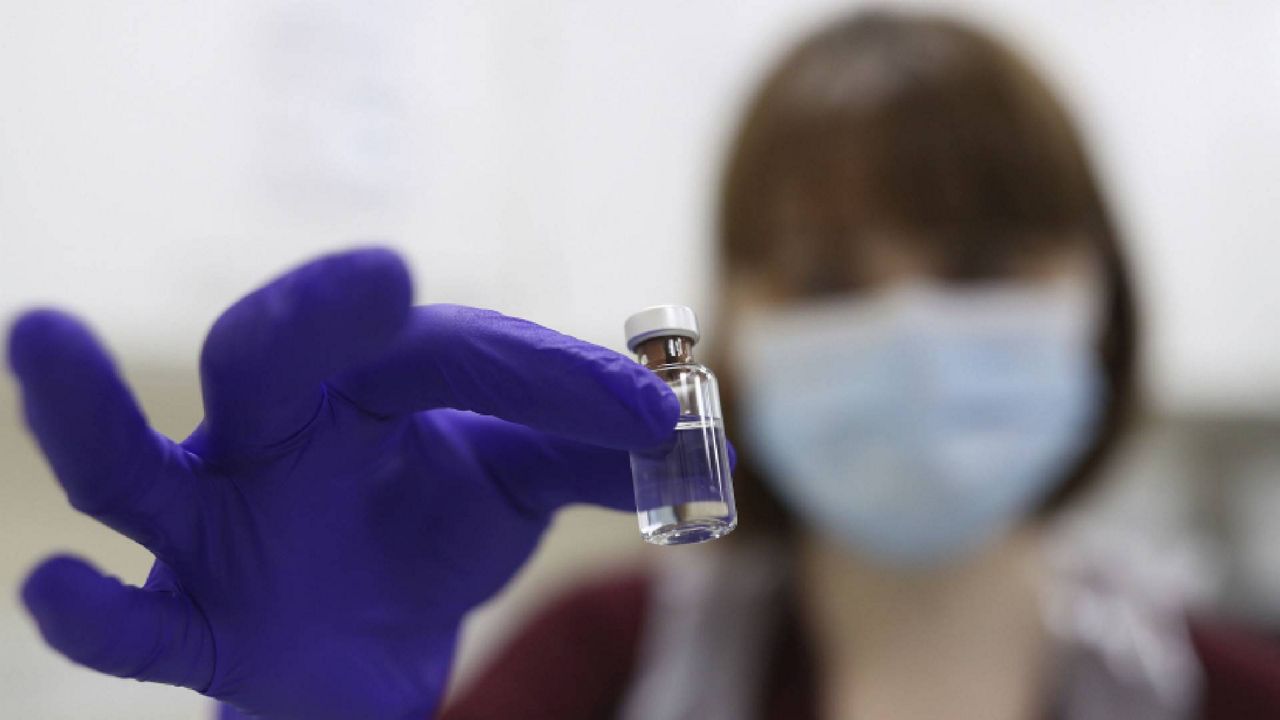As the U.S. watches and waits for a COVID-19 vaccine, the most promising candidates — from companies Pfizer/BioNTech and Moderna — could be approved within a matter of days to weeks, prompting questions about what Americans can expect from the shots and how safe they are.
Spectrum News spoke with vaccine experts across the country to dig deeper on the most common questions about the vaccines.
Are the vaccines safe? And are they safe for groups like children, older Americans, and those with underlying conditions?
Both the Pfizer and Moderna vaccines were developed in record time, but that doesn’t mean they are any less safe than previous vaccines, experts said. They owe its safety to a speedy yet rigorous development process and the technology behind the vaccines themselves.
“A lot of immediate safety issues are addressed pretty quickly,” said Dr. Raphael Viscidi of Johns Hopkins University, who helped develop a vaccine strategy during the first SARS epidemic.
“The studies are large enough to say that there isn’t going to be some kind of serious, adverse reaction,” he added. “There’s a hugely high bar for safety.”
Experts told Spectrum News that because the Pfizer and Moderna vaccines use mRNA — a code that mimics COVID-19’s spike proteins and triggers the body’s immune response — they might be safer.
“There’s a tiny piece of this virus, and so that means it can never do what viruses do,” said Dr. Paula Cannon, a virologist and Associate Professor of Microbiology at the University of Southern California’s medical school. “People are very excited about RNA vaccines.”
It’s still unclear whether the Pfizer and Moderna vaccines might have long-term side effects. But experts said the nature of mRNA vaccines could make it less likely, since the injected RNA typically disappears from the body after a few weeks to a month.

”mRNA hangs around for a little while, while that protein is made,” said Dr. Kristen Marks, who leads the Moderna vaccine trial at Weill Cornell Medicine in New York. “I think the vaccine so far suggests the immune response is only beneficial. We haven't seen a downside to it.”
The vaccines that have shown efficacy so far were developed and tested in a matter of months, yet they still went through all the checks and balances required by U.S. regulators. Instead of eliminating steps, some were done “simultaneously,” according to an Operation Warp Speed fact sheet.
“These vaccines have gone through an extraordinarily rigorous process already,” said Dr. Cannon.
“It's gone quickly not because shortcuts have been made but because all the different things you do to test the safety of a vaccine — normally, they proceed in a linear manner,” she added. “What's happened instead … is a huge amount of money got released by governments, by foundations, and companies like Moderna were basically told: Whatever it takes, do as much as you can simultaneously.”
Part of that financial risk included an investment from the U.S. government to manufacture vaccines on a large scale, even before they proved effective.
Experts told Spectrum News that financial investment combined with knowledge of the previous SARS virus and the sheer amount of cases around the world all together sped up the process.
“The fact that there was so much virus burden … allowed us to do these very interesting, sophisticated clinical designs where you can overlap phase one with phase two, phase two with phase three, said Dr. Maria Elena Bottazzi of Baylor College of Medicine, who helped develop a COVID-19 vaccine currently being tested in India.
“Never, ever, have we ever seen so many clinical trials being done at the same time for the same target” she added.
For Americans who are concerned about the safety of the forthcoming vaccines, experts said to speak with your health care provider and read more in-depth about how the vaccines work.
“If people don’t get the vaccine, we won’t solve this problem,” said Dr. Carl Fichtenbaum, who oversaw a part of Moderna’s trial at the University of Cincinnati. “As soon as we get … as many people as we can vaccinated, never mind flattening the curve — I think we’ll be able to bend the curve and invert the curve.”

Top health officials, the head of the World Health Organization and former U.S. presidents have said they would get vaccinated publicly as soon as it becomes available to them.
That includes Dr. Anthony Fauci of the National Institutes of Health, who told Spectrum News he “would not hesitate” to get a vaccine, and Health and Human Services Secretary Alex Azar, who said he would get vaccinated “on TV” as soon as possible.
Children are a group that has largely been untested when it comes to the Pfizer and Moderna vaccines.
“We don’t know anything about what the vaccines would do in children,” Dr. Viscidi said, noting that additional studies are likely to be done in the coming months.
In late October, Pfizer expanded its trial to kids 12 and older, and Moderna is expected to begin testing kids ages 12 to 17, the company announced last week.
“I think we’ll start to see kids who are two years and older starting to get vaccine studies,” Dr. Fichtenbaum said.
Experts noted that children are typically excluded from the first round of vaccine trials, but there is no evidence that the Pfizer and Moderna vaccines wouldn’t also work in children.
“If I had a child now, I would absolutely feel comfortable having that child get that vaccine,” Dr. Cannon said.
“Pretty much every vaccine that's out there, we get as children,” she added. “We know that our children's immune systems respond well to vaccines [and] it's an incredibly important aspect of both the personal health of our children as well as the public health in our schools.”

Experts noted that pregnant women were excluded from the Pfizer and Moderna trials, and they are another group that may be included in studies in the coming months.
Unlike children, Americans over the age of 65 and some with underlying medical conditions were included in Pfizer and Moderna’s trials.
The CDC has recommended that residents of long-term care facilities, including people living in nursing homes, are among the first to get vaccinated this month when a vaccine is approved.
“It’s obviously very, very important to know that the vaccine worked well in people who are at highest risk,” Dr. Viscidi said, noting that the companies didn’t publish specific results from those age groups.
The companies did publish some basic information about the make-up of their studies’ participants.
In Moderna’s phase three trial, one in four was over the age of 65, and 17% were at risk of severe disease due to conditions like obesity, diabetes and others.
Pfizer broke down its data differently, but it noted in a press release that nearly half of its U.S. participants were over the age of 56.
Experts said the main concern about vaccinating older Americans and those with underlying conditions is whether their immune response to the vaccine will be as robust as it would be in younger people.
“There are real questions about efficacy of vaccines across different groups,” Dr. Cannon. “There’s not a priori reason to think it might be more dangerous in old people.”
Cannon explained that some coronavirus vaccines may work better for different populations, and, as more are approved, it’s possible that doctors will find one that works better in elderly Americans and others at risk of severe COVID-19.



